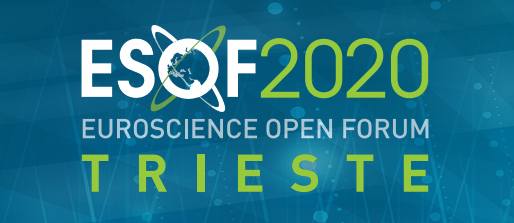
ESOF 2020 Trieste
Keynote Panel: 08h30 – 10h00, Friday 4th September 2020
If COVID-19 is the 9/11 Moment for Global Public Health, What Needs to Happen Next?
Abstract:
This high-level panel discussion moderated by the Financial Times Science Editor brings together world leading authorities on public health practice, management and policy. They are charged with conceiving, developing, implementing and often running those invisible systems we take for granted in our everyday lives – now utterly re-written by COVID-19.
Our panellists include: the editor-in-chief of a leading medical journal and vocal critic of government responses to the pandemic; a former African Science Minister now UNESCO’s Latin American & Caribbean Regional Leader; a physician now head of Asia’s most prestigious scientific agency; the former UN Health Envoy and Chief Executive of the Global Fund who is now a Member of the Global Committee on Drug Policy; and the Chair of South Africa’s COVID-19 Science Advisory Committee. Collectively they will make a call for urgent change.
Their shared objective is to look back at what has gone wrong (and right) with the response to the pandemic, while flagging its overlooked or still-to-be appreciated consequences. Their premise is that if the 9/11 attacks changed all our lives from the perspective of state security, then COVID-19 must leave a similar legacy for the future of global public health.
They will discuss what surveillance, diagnostics, therapeutics and vaccine development architecture should be put in place, ready for the next pandemic. With the strength of international cooperation tested to the full, what reformed or new regional or global facilities are needed, where and why? Above all, how can we put an end to our health chances being a global postcode lottery, while moving equal access to innovation and treatment for everyone in the world from pipe dream to reality?
Panel Overview:
 |
 |
Co-organiser & Moderator: {modal index.php/clive-cookson}Clive Cookson{/modal}, Science Editor, Financial Times & Executive Committee Member, ESOF 2020. This email address is being protected from spambots. You need JavaScript enabled to view it. |
 |
 |
{modal index.php/index.php/dr-lidia-brito}Dr Lidia Brito{/modal} Head of UNESCO’s Latin America & Caribbean Regional Office & Former Mozambiquan Minister for Science. This email address is being protected from spambots. You need JavaScript enabled to view it. |
 |
 |
{modal index.php/index.php/index.php/dr-michinari-hamaguchi}Dr Michinari Hamaguchi{/modal}, President of the Japanese Science & Technology Agency (JST). This email address is being protected from spambots. You need JavaScript enabled to view it. |
 |
 |
{modal index.php/index.php/index.php/index.php/dr-richard-horton}Dr Richard Horton{/modal}, Editor-in-Chief, The Lancet. This email address is being protected from spambots. You need JavaScript enabled to view it. |
 |
 |
{modal index.php/index.php/index.php/professor-salim-abdool-karim}Professor Salim Abdool Karim{/modal}, Chair of the South African COVID-19 Ministerial Advisory Committee. This email address is being protected from spambots. You need JavaScript enabled to view it. |
 |
 |
Professor Michel Kazatchkine, Member of the Global Commission on Drugs Policy, former Health Advisor to UN Secretary-General Ban Ki-moon. This email address is being protected from spambots. You need JavaScript enabled to view it. |
 |
 |
Co-organiser: {modal index.php/aidan-gilligan}Aidan Gilligan{/modal}, CEO, SciCom - Making Sense of Science & Executive Committee Member, ESOF 2020. This email address is being protected from spambots. You need JavaScript enabled to view it. |
If COVID-19 is the 9/11 moment for global public health, what needs to happen next?
Interviewed by the Financial Times Science Editor Clive Cookson, Dr Richard Horton, Editor-in-Chief of The Lancet Medical Journal gives a hard-hitting account of what has gone wrong (and right) with the response to the pandemic, while flagging its overlooked or still-to-be appreciated consequences. His premise is that if the 9/11 attacks changed all our lives from the perspective of state security, then COVID-19 must leave a similar legacy for the future of global public health. Dr Horton weighs-up the score cards of countries, regions, and institutions, plus the international scientific community itself. He examines the initial outbreak in China, the WHO and UN responses, developments in Italy, the UK, Germany, the USA, South Africa, New Zealand, Latin America etc.; his overriding conclusion being that history will judge us all very poorly. With the strength of international cooperation tested to the full, he expresses his frustration at no emergency assembly of the WHO yet being called. In a wide-ranging assessment, Dr Horton discusses the immediate cost to scientific journals, the pros and cons of the vaccine race, and future resurgences and lockdowns. Above all, he argues for an end to our health chances being a global postcode lottery and calls upon each of us, as individuals, to take greater responsibility for how we live and act with the virus.
{modal index.php/index.php/index.php/index.php/dr-richard-horton}Dr Richard Horton{/modal}, Editor-in-Chief, The Lancet.
{modal index.php/clive-cookson}Clive Cookson{/modal}, Science Editor, Financial Times.

